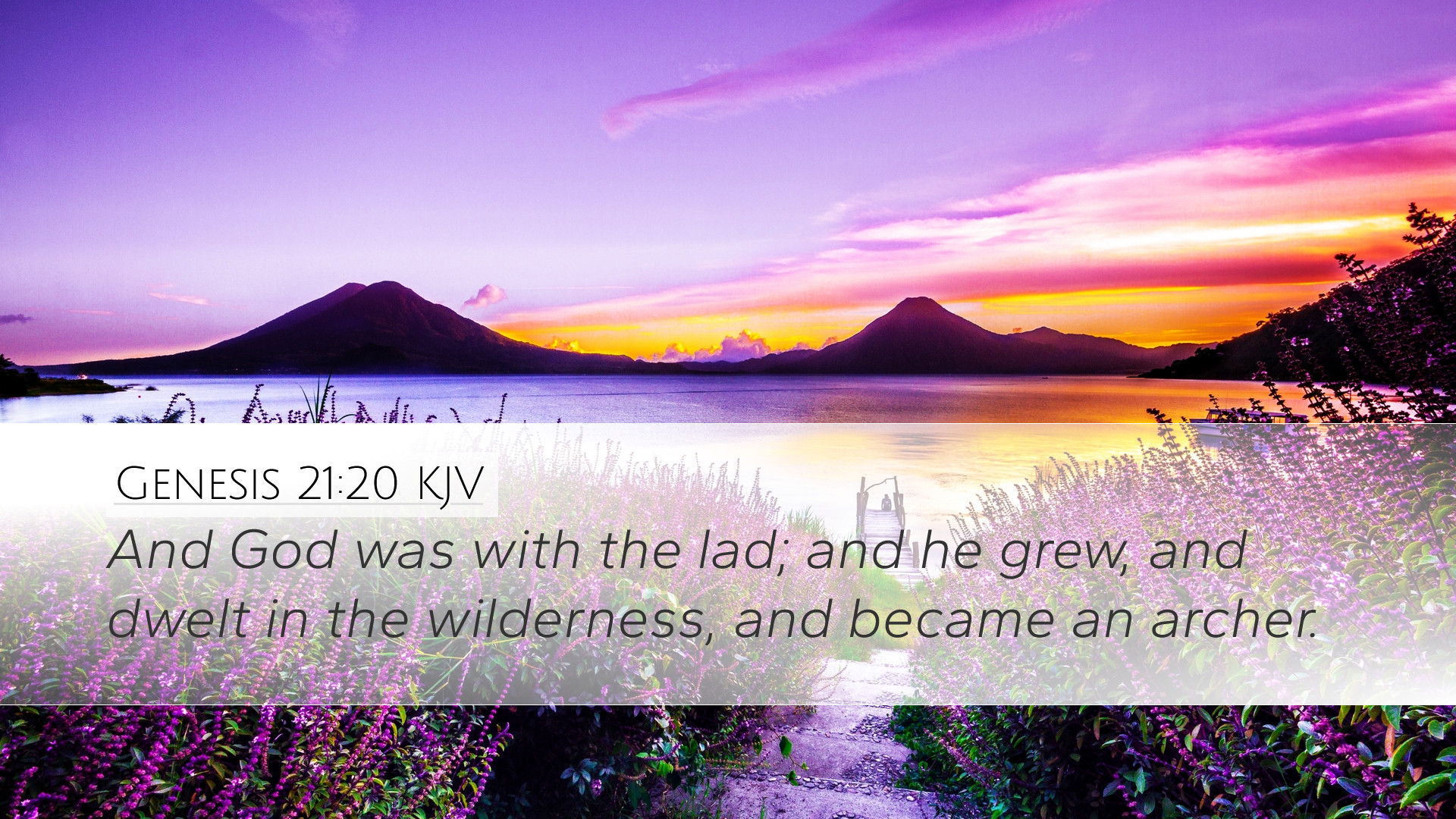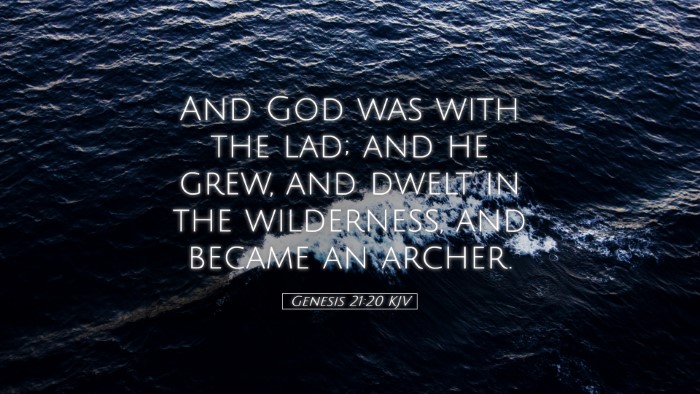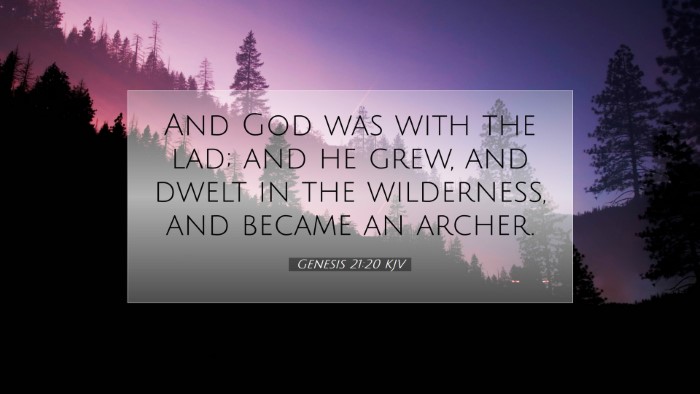Commentary on Genesis 21:20
Genesis 21:20 states: "And God was with the lad; and he grew, and dwelt in the wilderness, and became an archer." This verse marks a pivotal moment in the narrative of Hagar and Ishmael, highlighting God's ongoing providence and care for those whom society may overlook.
Exegesis and Context
At this juncture in the biblical narrative, we observe the fulfillment of God's promises concerning Ishmael, the son of Abraham and Hagar. After the birth of Isaac, tensions arise, leading to Hagar and Ishmael's expulsion from Abraham's household. This action raises questions about divine favor and human relationships.
Historical Background
In understanding Genesis 21:20, one must consider the cultural and historical background of the text. Abraham, a central figure in biblical history, navigates familial relationships marked by complexities of sin, grace, and divine purpose. Hagar's plight as a bondwoman reflects the broader themes of marginalization and divine intervention.
Thematic Analysis
This verse encapsulates several critical themes that are of utmost importance for pastors, students, and theologians.
- Divine Presence: The phrase "God was with the lad" reveals God's faithfulness amidst human failures. This divine companionship signifies that even in isolation, God’s presence is steadfast.
- Growth and Maturity: The statement that Ishmael "grew" indicates physical, emotional, and spiritual development. This growth occurs even in adverse conditions, suggesting that God can nurture His purposes in the most unlikely of circumstances.
- God's Care for the Outsider: Hagar and Ishmael signify God's love for those who are often forgotten or marginalized. Their story reminds us that God's concern extends beyond Israel, encompassing all of humanity.
Insights from Public Domain Commentaries
Matthew Henry's Commentary
Matthew Henry emphasizes the significance of God’s presence in Ishmael's life. He notes that despite being cast out, Ishmael was not forsaken by God. Henry asserts that "the children of God's people are under his particular care, and he hath his eye upon them." This reassures believers that God's providence reaches even those in distress.
Albert Barnes' Notes on the Bible
Albert Barnes elaborates on the implications of God's presence with Ishmael. He writes, "The promise that was made to Abraham concerning Ishmael is here fulfilled." Barnes calls attention to Ishmael's development into an "archer," suggesting a transition into a life of independence and resilience. This represents a form of divine vocational calling, where one is empowered to navigate the challenges ahead.
Adam Clarke's Commentary
Adam Clarke offers a detailed examination of the wilderness in which Ishmael dwelt. He underscores the concept of wilderness as both a physical and spiritual space of testing and formation. Clarke suggests that the wilderness represents a place where individuals encounter God in profound ways, shaping their identity and purpose. He writes, "The wilderness is often the place of God's training for great purposes." This serves as a reminder that isolation can lead to divine encounter and revelation.
Theological Reflections
The profound theological implications of Genesis 21:20 challenge us to reflect on God's character. Key takeaways include:
- Faithfulness: God’s unwavering faithfulness in the face of human shortcomings is highlighted in this verse. It challenges believers to trust in God's plans, even amid rejection or societal disdain.
- Redemption: Ishmael's life trajectory mirrors the redemptive narrative of Scripture, where God takes those on the margins and uses them for His purposes. This invites a broader conversation about inclusion and the expansive nature of God's grace.
- Hope for the Vulnerable: The story of Ishmael assures that God sees and cares for the vulnerable. Pastors and theologians are called to advocate for those who may be suffering and marginalized in their communities, often reflecting God's mission on earth.
Practical Applications
In light of Genesis 21:20, believers can derive practical applications for their own lives:
- Trust God’s Presence: Like Ishmael, individuals often find themselves in positions of vulnerability. Trusting in God's presence can provide assurance that they are not alone in their struggles.
- Empower the Marginalized: Recognizing God’s concern for the marginalized fosters a commitment within the church to serve and uplift those who are often overlooked by society.
- Embrace Spiritual Growth: One's journey may lead through hardships; however, these experiences can facilitate growth in faith, shaping one's character in profound ways.
Conclusion
Genesis 21:20 offers rich insights into the nature of God's providence, the journey of individuals often deemed insignificant, and the unfolding of divine purpose in challenging circumstances. It serves as a reminder of God's steadfastness and presence, urging believers to reflect these attributes in their relationships and ministries.


